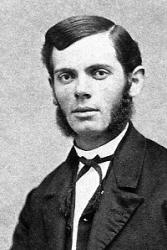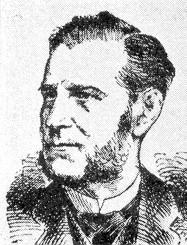970 - 1031 Person Name: Robert II. of France Hymnal Number: 163 Author of "Holy Spirit, Lord of light, From thy clear celestial height" in University Hymns Robert the Second, King of France, surnamed "Le Page" and "Le Devot," born circa 970, was the son of Hugh Capet, the first of the line of kings that succeeded the Carlovingian monarchs on the French throne. After having been associated with his father in the government of the kingdom, in 988 he became king in his own right. The story of his life, rather than of his reign, is a sad one; troubles both in his family and without so multiplying upon him that it needed all the consolation that he sought and found in religion to enable him to bear up against them. Having in 995 or 996 espoused Bertha, the widow of Eades, Count of Chartres, and daughter of Conrad the Pacific, his cousin in the fourth degree (a marriage at that time strictly forbidden by the Roman Catholic Church), he was commanded by a decree of Pope Gregory V. to put her away. He was tenderly attached to her, and refused, whereupon he was excommunicated. This sentence caused the unhappy couple to be abandoned by all their courtiers, and even their servants, with the exception of two of the latter. After living together for a while in a state of sore privation, nay, almost absolute destitution, Bertha was delivered of a still-born infant, which was represented to Robert to have been a monster with “a head and neck like a goose." On hearing this (for the fond husband was but a weak and credulous man), Robert repudiated his wife, who thereupon retired into a nunnery.
Subsequently, probably about 1002, he married Constance, a daughter of the Count of Aries, by whom he had four sons and two daughters. Much of the misery of his later life resulted from this marriage; for in addition to the antagonism which existed in their tastes and pursuits, Constance endeavoured to secure the kingdom for her youngest son Robert, to the exclusion of the third son Henry (Hugh, the eldest, haying died, and Eudes, the second, being an idiot), and this led to constant domestic broils which embittered the gentle king's existence. In 1024 he refused (and wisely) the Imperial Crown of the House of Saxony, when the Italians offered it to him on the death of Henry II., the last of the Saxon Emperors. Robert spent much of his time in the society of monks, assisting in the services of the Church, and engaging on pious pilgrimages. It was upon his return from one of the latter to some of the principal sanctuaries of France that he was attacked by a fever, to which he succumbed at Thelun in 1031, in the 60th year of his age and the 34th of his reign more deeply lamented by his people, to whom he had attached himself by the sweetness and simplicity of his character, than any other king, probably, who ever reigned in France. Robert had a great love for, and skill in, church music, and it is not improbable that compobitions of his are even at this day in use in the services of his Church. [Rev. Digby S. Wrangham, M.A.]
It has been the custom to speak of King Robert as a hymn-writer. But when the different authorities come to specify the pieces which he is said to have composed, their statements are hopelessly at variance. For the purposes of this article we shall take four ancient authorities:—
(a) and (b) In the Recueil des Historiens des Gaules et de la France, vol. x., Paris, 1760, pp. 297-300, there are extracts "ex chronico Sithiensi" (a); and also "ex chronico Alberici ad annum 997 " (b).
(c) In the Junius manuscript, 121, in the Bodleian there is a list of authors of sequences, written about 1300.
(d) William Durandus (d. 1296) in his Rationale, Bk. iv., has a section "De prosa seu sequentia." This occurs in two manuscripts of the 14th century in the British Museum [Add. 18304, f. 20 b; Reg. 7 E., ix. f. 53. An earlier and finer manuscript than either (Add. 31032) has unfortunately lost the leaf containing this section].
By these four authorities the following hymns and sequences are ascribed to King Robert :—
1. Chorus novae Hierusalem.
2. Rex omnipotens die hodierna.
3. Sancti Spiritus adsit nobis gratia.
4. Veni Sancte Spiritus.
5. Victiniae Paschali.
But of these a only ascribes to him No. 3, and does not mention Nos. 1,2, 4 or 5, while b ascribes to him Nos. 2 and 3, and does Dot mention Nos. 1, 4 or 5. On the other hand c ascribes to him No. 5, while No. 3 it ascribes to Hermannus Contract us, and Nos. 1, 2, 4 it does not mention at all. Lastly d ascribes to him Nos. 1 and 4, but ascribes Nos. 2 and 3 to Hermannus Contractus, and does not mention No. 5. Taking these in detail, we find No. 1 is only ascribed to King Robert by d, and seems more probably to be by Fulbert of Chartres (see p, 224, i.). No. $. seems without doubt to be by Notker Balbulus (see note on "Sancti Spiritus adsit"). For No. 5 see note on "Victimae Paschali." No. 2 is noted at p. 958, ii, and, according to the common opinion, is there ascribed to Hermannus Contractus; but this ascription is very doubtful, seeing that he d. in 1054, and was only b. in 1013, while the Bodleian manuscript 775 was written in England about 1000, so that the ascription of b deserves attention. As to No. 4 the subject of authorship is treated more fully under "Veni Sancte Spiritus," but here it may be said that Durandus and those who followed him are alone in ascribing it to King Robert, for the French tradition was clearly against this, e.g. neither a nor b ascribe it to him, and Clichtovaeus in his Elucidatorium, Paris, 1516, and the Augustinian Missal, printed at Paris, 1529, which may be taken to represent the later French tradition, while agreeing in ascribing No. 3 to King Robert, agree also in treating No. 4 as of un¬known authorship. To sum up then it seems to us that No. 2 is possibly by King Robert; that Nos. 3 and 4 are clearly not by him; and that his claim to Nos. 1 and 5 is exceedingly doubtful.
The French chronicles a and b as above also ascribe to King Robert other liturgical pieces, viz.:—(1) "O Constantia martyrum," (2) "Judaea (O Juda) et Hierusalem," (3) "Eripe me," (4) " Ounctipotens genitor"(5) "Cornelius centurio," (6) "Pro fidei meritis," (7) “Concede nobis quaesumus." These appear to be Responsories and Antiphons, but whether rightly or wrongly ascribed to Robert the present writer cannot say. No. 7 is also ascribed to him by c as above. [Rev. James Mearns, M.A.]
--John Julian, Dictionary of Hymnology (1907)
Robert II, King of France


 My Starred Hymns
My Starred Hymns





